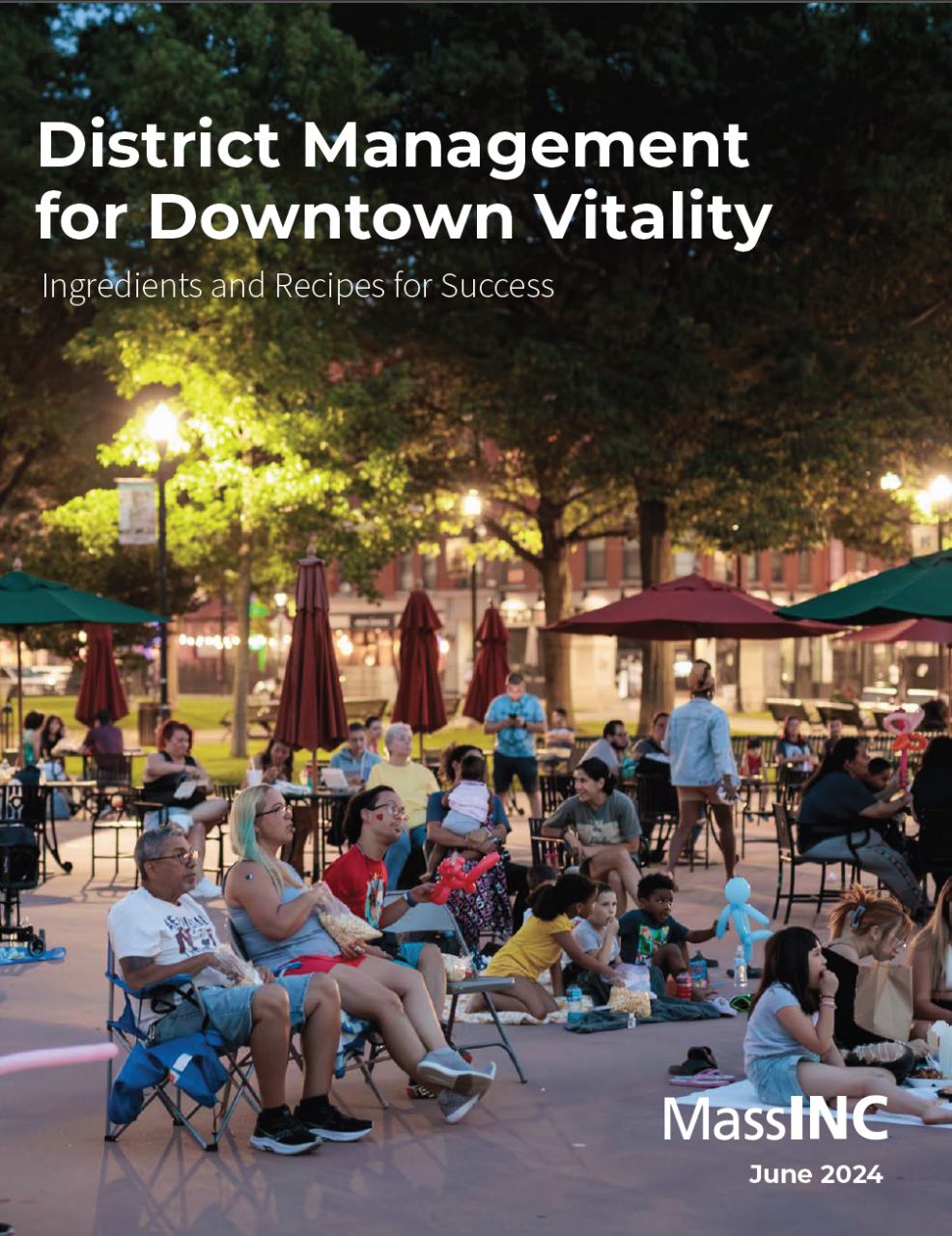
Gateway Cities Innovation Institute
The Gateway Cities Innovation Institute works to unlock the economic potential of small to mid-size regional cities. Leveraging MassINC’s research, polling, and policy team, the Institute strengthens connections across communities and helps Gateway City leaders develop and advance a shared policy agenda.



Latest Research and Updates
See all Gateway Cities Updates
13th Annual Gateway Cities Innovation Summit
On October 28, leaders from across Massachusetts gathered in Lowell to explore how regional collaboration can drive inclusive growth in a changing economy.
October 30, 2025
Announcing the 2025 Gateway Cities Innovation Award Honorees
October 20, 2025
2025 Gateway Cities Housing Monitor
September 17, 2025
Featured Research
See all Gateway Cities Research
District Management for Downtown Vitality
Commercial districts need a high volume of foot traffic to support thriving small businesses. Supplemental district management services can dramatically increase this pedestrian activity.
Key Takeaways
- District management organizations (DMOs) encourage thriving local commercial districts for small businesses to flourish.
- DMOs require an annual operating budget of between $200,000 – $700,000 depending on the district size. Increased state funding could ease the operating gap DMOs typically face.
- Between now and 2030, cohorts of 5 large DMOs could be supported each year starting at $500,000 and peaking at $5.5 million annually. These DMOs could general $13 million annually for local revitalization.
Gateway Cities Journal
News and information for everyone who cares about Gateway Cities. The Gateway Cities Journal is a biweekly blog covering state and local policy topics, including analysis, news coverage, and links to resources of interest to these communities.
Gateway Cities Journal | Supportive Housing in Jeopardy: What Gateway City Leaders Need to Know
A critical shift in federal homelessness policy threatens the future of permanent supportive housing in Massachusetts’ Gateway Cities, raising housing stability risks for vulnerable residents and laying out what local leaders need to understand and act on now.
January 30, 2026
Subscribe to the Gateway Cities Journal.
Get the latest updates and research from the Gateway Cities initiative delivered right to your inbox.


